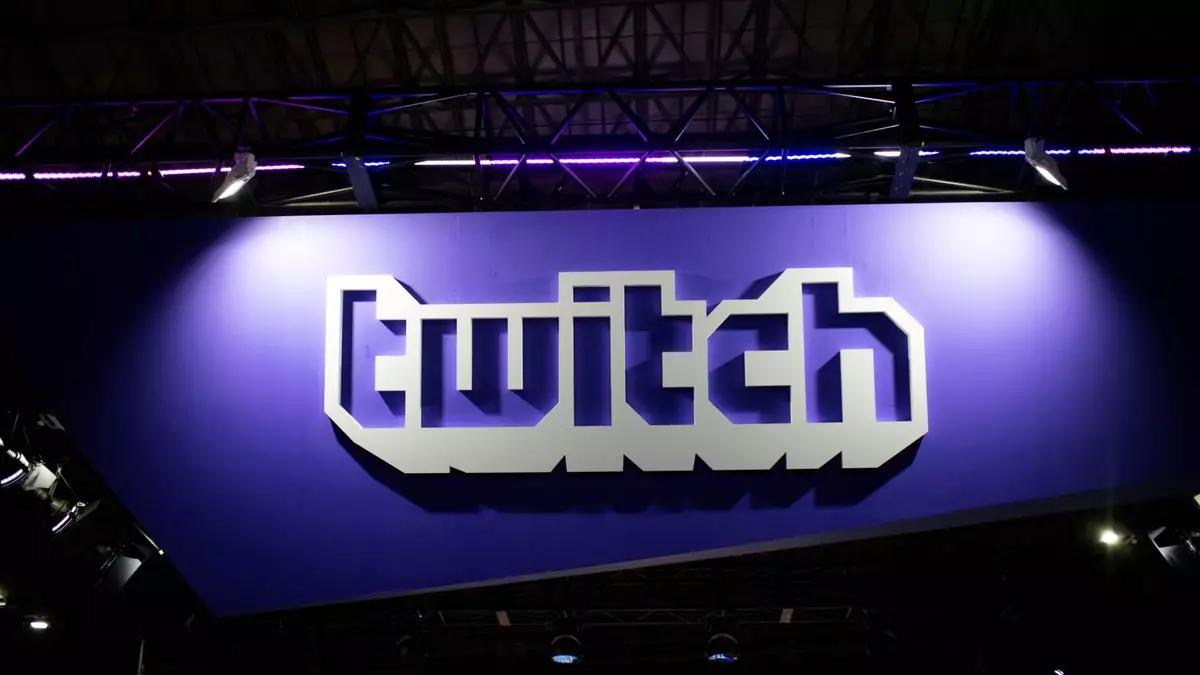In recent developments, Twitch has broadened its content classification framework by introducing a new category specifically aimed at “politics and sensitive social issues.” This expansion necessitates that content creators label streams discussing grave topics like elections, civil rights, and military conflicts. These measures are intended to protect viewers, particularly younger audiences, from potentially distressing content. However, the unclear delineation of what falls under this new classification raises several critical questions about the platform’s intent and effectiveness.
The introduction of this latest category follows a tumultuous period for Twitch. The platform, which enjoys millions of active users, has faced significant backlash over allegations of biased content moderation and accusations of fostering hate speech. The new classification labels are geared towards identifying streams that discuss politically charged themes without violating Twitch’s community guidelines. However, the criteria defining this category are somewhat nebulous, leading to concerns that creators may face confusion and even self-censorship.
The ambiguous nature of what constitutes “politically sensitive content” has sparked debate within the community. Will neutral discussions of current events be required to carry labels, even if they are merely informational? For instance, does a factual analysis of government policies require a warning? The complexity of these guidelines could lead to inconsistent application and enforcement, leaving streamers uncertain about their content’s categorization.
Adding context to the need for these new guidelines, a spate of controversies erupted recently, including a notable incident involving popular streamer Zack “Asmongold” Hoyt, whose racist comments about Palestinian culture resulted in a two-week suspension. This misstep, compounded by Twitch’s subsequent banning of several Arab streamers and the revelation that account signups from Israel and Palestine had been halted, has put Twitch’s moderation policies under intense scrutiny. Such incidents have raised questions regarding the fairness and consistency of the platform’s moderation practices.
Twitch’s CEO, Dan Clancy, issued a statement affirming the platform’s commitment to combating hate and harassment. While his sentiments echo a reassuring zero-tolerance stance, the effectiveness of such statements is often contingent upon their implementation in practice. In the fragmented landscape of online communication, the challenge lies not just in policy creation, but in fostering an environment that genuinely prioritizes user safety and inclusive discourse.
The vagueness surrounding the definition of sensitive content poses significant challenges. When Twitch mentions “streams with intermittent mentions of politics” being exempt from labeling, it raises the question of where the line is drawn. Streamers discussing hot-button issues often interweave personal experiences with political narratives. How will these nuanced discussions be categorized? The retardation of candid conversations about matters integral to identities—such as gender rights or immigration reform—could arise if creators fear punitive measures.
The potential impact on revenue generation also cannot be overlooked. Twitch, heavily reliant on advertising partnerships, may inadvertently stigmatize serious discussions by labeling them as sensitive. Streamers could find their audiences diminished and revenue streams affected due to label placements. The concern is not merely about triggering bans but about creating a culture of avoidance concerning genuine dialogue on pressing social issues.
Ultimately, the reception of Twitch’s classification system has been rife with skepticism. Some have asserted that Twitch’s move is a shallow response to growing criticism rather than a genuine effort to engage with uncomfortable truths in society. Others predict that modifications to the newly introduced category, or perhaps a complete overhaul, will be necessary as the platform grapples with user feedback and the implications of its latest policies.
As a platform that not only supports millions of diverse voices but amplifies them, Twitch must navigate the intricacies of content moderation with a transparent and informed approach. While the desire to classify content is in principle a helpful endeavor, its execution must account for the multifaceted realities of socio-political discussions. Unless tackled with clarity, these classification guidelines risk creating a chilling environment where streamers hesitate to address essential topics, thereby undermining the platform’s core purpose of fostering community engagement.
The introduction of the “politics and sensitive social issues” category may appear to be a proactive measure aimed at viewer protection, yet its opaque stipulations could very well lead to confusion and censorship. With the potential ramifications of ambiguous content classification guidelines at play, Twitch must proceed with caution—potentially revisiting its policies to better align with the diverse needs of its community and uphold its commitment to free expression.

